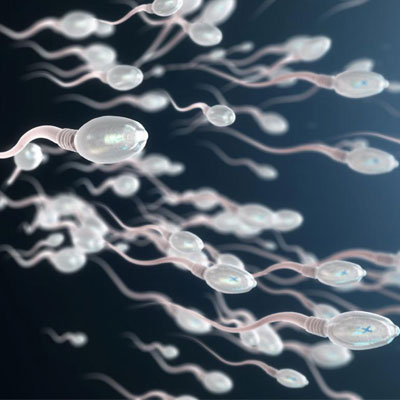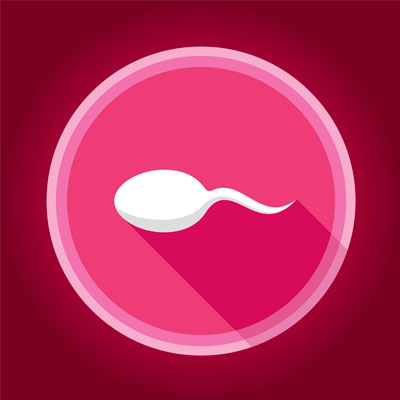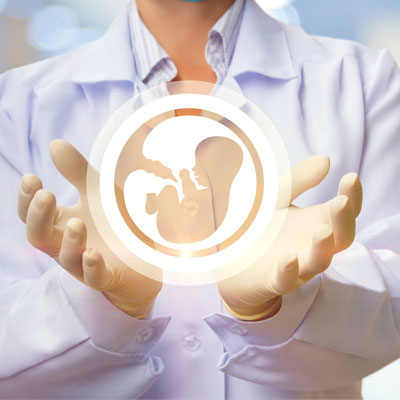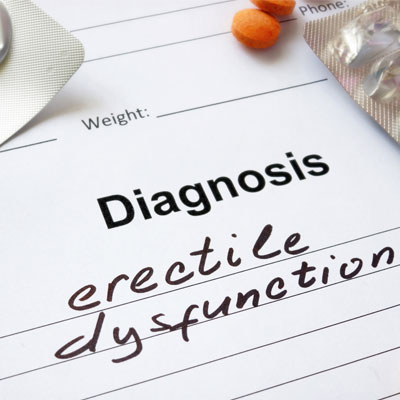Testosterone Replacement Therapy and Sex Drive
Contents
- Testosterone And the Causes of Low Libido
- Low Testosterone and Erectile Dysfunction
- Infertility and Testosterone Replacement
- Testosterone Therapy and Testicular Atrophy
- Will My Sex Drive Be Improved With Testosterone Replacement Therapy?
- Does Testosterone Therapy Help Increase Sex Drive In Women?
- What Does the Research Say About Testosterone and Libido?
Testosterone replacement therapy has a positive impact on “sex drive” or “libido” in both men and women.
Medical science cannot say that having low testosterone definitively “causes” a decreased sex drive. But the two conditions are certainly what doctors refer to as “comorbid,” meaning they often occur together, but we cannot say that there is a direct cause and effect relationship between them.
What we do know for sure is that as men age and testosterone drops, so does their interest in sex and their ability to perform sexually. We also know that testosterone is essential for normal erectile function. The relationship between low testosterone and erectile function is a complex one. One thing is certain; however, men with low testosterone also are highly likely to suffer from ED.
Testosterone And the Causes of Low Libido
Testosterone is the most critical male hormone. We know that testosterone is responsible for building muscles, sexual maturity, and the other things that differentiate a boy from a man after he hits puberty. Even once a man’s sex organs are fully mature, and functional testosterone continues to play a vital role in sexual health and sexual performance.
Throughout a man’s (and indeed a women’s) life, your testosterone levels factor into your sex drive or libido. While dropping testosterone levels are an unfortunate fact of aging, one of the more undesirable impacts that steady decline has, is its effect on sexual health and sexual performance.
In men, low testosterone can lead to a decreased libido as well as erectile dysfunction. In women going through menopause, we now know that the sexual health issues experienced, such as low libido and vaginal dryness, are more related to the drop in testosterone than of estrogen that occurs in menopausal women.
Low Testosterone and Erectile Dysfunction

In addition, research has found that testosterone replacement therapy may be able to help certain men suffering from erectile dysfunction.
Erectile Dysfunction, commonly known as “ED,” is defined as “the persistent inability to achieve or maintain an erection that is satisfactory for sexual intercourse.” But there are varying “degrees” of ED. You may be considered to have a form of ED if:
- You can’t get an erection that is hard enough for satisfactory intercourse
- You lose your erection before you can complete the sexual act.
- You cannot achieve an erection at all. This is known as “complete ED,” or the condition doctors used to call “impotence.”
Erectile dysfunction has many causes. Getting and maintaining an erection is a complex process; anything that interferes with that process can cause ED. Some of the most common causes of erectile dysfunction include:
- Heart disease
- Clogged blood vessels (atherosclerosis)
- High cholesterol
- High blood pressure
- Diabetes
- Obesity
- Peyronie’s disease — development of scar tissue inside the penis
- Low testosterone
We know that low testosterone leads to erectile dysfunction, decreased sex drive, and other sexual health issues in men. It is a biological fact that as men age and testosterone drops, so does their ability to perform sexually. We also know that testosterone is essential for normal erectile function. The relationship between low testosterone and erectile function is a complex one.
One thing is certain; however, men with low testosterone also are quite likely to, and usually do, also suffer from ED. But that does not mean that their ED is caused by their low testosterone. Low testosterone impacts a man’s health in several ways that can lead to ED. For example, men with low testosterone also tend to be overweight, have hardening of the arteries, and diabetes, all of which are known to contribute to ED. In addition, men with low testosterone are also often weak, tired, stressed, and/or depressed — all of which can lead to erectile dysfunction and/or a lack of desire for sex.
Testosterone therapy can improve symptoms of erectile dysfunction and increase sex drive, or libido, in both men and women.
Infertility and Testosterone Replacement
Testosterone also has an impact on sperm count and fertility in men. Testosterone is required for sperm production, but it is other hormones, and not testosterone, that stimulates the production of sperm. The pituitary gland produces follicle-stimulating hormone (FSH) and luteinizing hormone (LH). LH stimulates the testes to release testosterone. When in balance, testosterone works with FSH to help to generate sperm.
Men who may be having infertility issues could be suffering from low testosterone.
Male infertility can have many causes, not all of which are related to sperm count. Other issues can also influence a man’s ability to conceive a child, such as:
- Libido or sex drive
- Erectile dysfunction (ED)
- Sperm motility, or their ability to swim
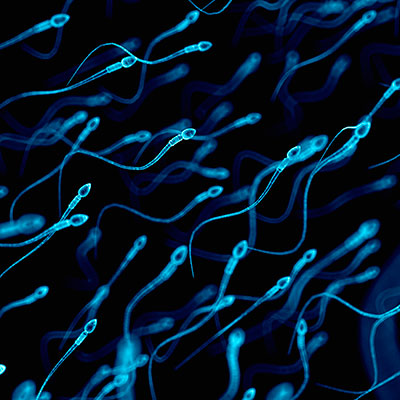
However, while it may seem counterintuitive, testosterone replacement is NOT a recommended treatment for men who are having fertility issues. In fact, a potential side effect of testosterone replacement is infertility. Testosterone therapy can cause men to become infertile. Taking testosterone decreases the production of the follicle-stimulating hormone (FSH) from the brain, which is the hormone that drives sperm production.
Both testosterone and FSH are required for the production of sperm. FSH is a gonadotropin-releasing hormone (GnRH). These types of hormones are released by the brain and signal the testes to make more testosterone, which is vital for a healthy sperm count.
But, when you’re on testosterone replacement therapy, testosterone is added directly into the bloodstream. Your brain interprets this rise in testosterone level as a sign that you now have enough testosterone. So, it stops sending signals to the testes to make more testosterone. But when your testes don’t make more testosterone, your sperm production goes down.
In fact, taking testosterone is so “effective” at lowering sperm count, testosterone is even being considered as a form of male “birth control.” As much as 90% of men can drop their sperm counts to zero while on testosterone replacement.
Traditional testosterone therapy, therefore, is usually not considered to be a treatment for men with low sperm count. If you want to be a father, and your testosterone is low, try making some lifestyle changes that can raise both sperm count and testosterone. If your issues with infertility persist, speak with your doctor or a male reproduction specialist. There are options other than testosterone therapy that can be used, such as clomiphene citrate or fertility injections, to increase both testosterone production and sperm production.
Testosterone Therapy and Testicular Atrophy
Testicular atrophy refers to the shrinking of your testicles, which are the two male reproductive glands located in the scrotum. Testicular atrophy should not be confused with “shrinkage” of the scrotum, which can be caused as a temporary reaction to cold. Testicular atrophy is an actual shrinkage of the testicles within the scrotum.
Testicular atrophy can be caused by disease, injury, exposure to certain chemicals, or the ABUSE of testosterone. Men taking anabolic steroids or otherwise misusing or abusing testosterone to “bulk up” or for athletic performance enhancement have been known to experience testicular atrophy. Estrogen can have the same impact. However, when used as legitimately prescribed for you for the treatment of a diagnosis of low testosterone, testosterone replacement rarely causes testicular atrophy.
Will My Sex Drive Be Improved With Testosterone Replacement Therapy?

There could be several reasons why treating your low testosterone with testosterone replacement can increase your sex drive. The main one, researchers believe, has to do with certain “neurotransmitters” in the brain, such as dopamine and serotonin.
Dopamine and serotonin are called “feel-good chemicals” because they are both involved in mood. People who are anxious and depressed have low levels of these chemicals. Dopamine and serotonin also are involved in sexual arousal and gaining and maintaining orgasm in both men and women.
Testosterone is a known precursor to the production and release of these chemicals. Patients diagnosed with low testosterone almost always have a reduction in the production of these “feel good” brain chemicals. This is why mood swings, anxiety, and depression are common symptoms of low testosterone.
Just as testosterone replacement can improve mood by boosting the production of serotonin and dopamine, that also improves libido. Testosterone can improve your sex drive in several less direct ways as well. Eliminating feelings of depression, improved energy, and improved body image can also have a physical and psychological effect of increasing sex drive!
Does Testosterone Therapy Help Increase Sex Drive In Women?
Yes, current research indicates that testosterone replacement can increase sex drive and improve other symptoms of “female sexual dysfunction” or FSD that are often experienced by women entering and going through menopause.
Unlike men, who lose testosterone slowly over time, women experience a sudden drop in testosterone just as they do their female hormones when they enter menopause. The symptoms of FSD include vaginal dryness, lack of libido, loss of sensitivity, and painful intercourse. It was once thought that the sexual health issues experienced by menopausal women were due to the loss of estrogen that occurs in the post-childbearing years. However, current research indicates that it is more related to a drop in testosterone.
The vaginal dryness, lack of libido, and painful intercourse that many women suffer during their perimenopause and menopausal years can all be helped by testosterone replacement therapy.
Sharon Parish, MD, professor of medicine in clinical psychiatry and professor of clinical medicine at Weill Cornell Medical College, presenting the results of her research entitled, “How I treat women with testosterone deficiency,” to Endocrine Today said, “Among postmenopausal women and women who experienced surgical menopause or premature ovarian failure, studies show that low testosterone levels are closely correlated with reduced coital frequency and loss of sexual desire and researchers have observed a positive relationship between [increasing] free testosterone levels and the rating of sexual desire….”
What Does the Research Say About Testosterone and Libido?
Researchers haven’t exactly unraveled the mystery of just how testosterone increases libido; however, there have been many studies that indicate that it does, in fact, increase libido or sex drive. For example, a large study of men in Massachusetts published in The Journal of Clinical Endocrinology and Metabolism found that about 11% overall said they had a lack of sex drive. The researchers then tested all the men’s testosterone levels. About 28% of men with low testosterone had low libido. Interestingly enough, these men were relatively young, with an average age of 47; older men might have worse sexual symptoms.
According to a study recently published in the prestigious New England Journal of Medicine, testosterone therapy has been confirmed as being helpful in increasing sex drive in men with low libido. The study found that testosterone replacement therapy was effective in boosting mood and increasing sexual desire in men with sexual health issues. The men in the study all had a self-described “decline in sex drive” and/or erectile difficulties. In interviews before starting testosterone treatments, they also reported being moody, depressed, and “unmotivated.”
The lead researcher on the study Dr. Peter Snyder of the University of Pennsylvania concluded it was clear that “Testosterone improved sexual activity, sexual desire, and improved erectile function.”
Similarly, a 2018 “mega-study” or study of studies published in Current Opinion in Urology concluded, “The available literature supports a role for [testosterone replacement therapy] in men with low testosterone levels, ED, and low libido, with symptomatic improvement in these men.” The study also said, “Testosterone therapy has also shown consistent benefit in improving libido in men with low testosterone levels at baseline, with no additional improvements once testosterone levels are normalized.”
Testosterone replacement can improve the sex life of both men and women in many ways.
Now that you know a bit more about the link between low testosterone and sexual health, why not contact us today? We would be happy to answer any questions or concerns you may have about testosterone replacement therapy.
FAQ
What is Low Libido?
Low libido describes a decreased interest in sexual activity. It’s common to lose interest in sex from time to time, and libido levels vary throughout your life. It’s also normal for your interest not to match your partner’s at times. While many things can contribute to a loss of libido, long-term, or chronic loss of sexual desire, particularly in older men and women, could be a symptom of age-related testosterone deficiency.
Does Testosterone Increase Sex Drive?
Researchers haven't exactly unraveled the mystery of just how testosterone increases libido. However, there have been many studies that indicate that it does, in fact, increase libido or sex drive.
Does Masturbating Reduce Testosterone?
Many people believe that masturbation affects a man’s testosterone levels, but this is not necessarily true. Masturbation does not seem to have any long-lasting effects on testosterone levels. However, masturbation may have short-term effects on the levels of this hormone. It also affects other factors, such as sex drive. Masturbation does not typically pose a threat to any other aspects of a person’s physical health.
Does Testosterone Help With Better Erections?
Yes, studies have shown that testosterone therapy can improve ED symptoms as well as increase libido. With so many drugs and procedures currently available to help men with ED, no one is suggesting that testosterone replacement therapy should be used to treat erectile dysfunction. However, in men with low testosterone, we do know that testosterone therapy increases sexual desire and improves sexual performance.
Can Pornography or Erotica Increase Testosterone Levels?
Studies suggest that men struggling with low testosterone might want to consider using erotic materials to boost libido and help elevate hormone levels.
For years, research has shown that men's testosterone levels increase when they're presented with visual erotic stimuli.
Does Testosterone Increase Penis Size?
Testosterone, along with human growth hormone, has been used to increase penis size when used along with other treatments in men suffering from a rare condition known as a "micro-penis," in which a penis fails to mature from child-sized to adult-sized. There is, however, little or no evidence to suggest that testosterone can increase flaccid penis size in otherwise normal-sized men.
Can Too Much Testosterone Cause Erectile Dysfunction?
In men that have been abusing testosterone, such as taking it illegally to bulk up for weightlifting or bodybuilding, it has been known to shrink the testicles and cause "man boobs" because of increased levels of estrogen that occur in the male body when testosterone is abused in this way. This has led to the mistaken belief that testosterone injections can cause ED. This is not true when using testosterone as properly prescribed for you by your doctor. In fact, testosterone can improve ED symptoms in men that have been diagnosed with low testosterone.
- Paul J. Rizk, Taylor Kohn, MD, Alexander W Pastuszak, MD, PhD, Dr. Mohit Khera, MD
- Thomas G. Travison, PhD, John E. Morley, MB, BCh, Andre Araujo, Amy O’Donnell, John B. McKinlay, MD
- Carolyn Allan, MBBS (Hons), PhD, FRACP, DRCOG, Elise Forbes, Boyd J.G. Strauss, MBBS, PhD, FRACP, FRCPath, FRCPE, Robert McLachlan, MBBS, PhD, NHMRC
- Harvard Health Publishing
- Mohit Khera, Rajib K Bhattacharya, Gary Blick, Harvey Kushner, Dat Nguyen, Martin M Miner
- Michael Martin; Reviewed by Dr. Mike Bohl, MD, MPH
Testosterone therapy improves erectile function and libido in hypogonadal men
The Relationship between Libido and Testosterone Levels in Aging Men
Testosterone therapy increases sexual desire in ageing men with low-normal testosterone levels and symptoms of androgen deficiency
The facts about testosterone and sex
Improved sexual function with testosterone replacement therapy in hypogonadal men: real-world data from the Testim Registry in the United States (TRiUS)
Sex drive and testosterone: the relationship explained




